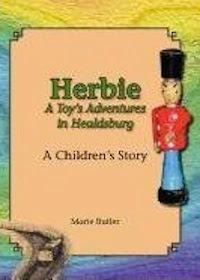I recently read an interview of Jack Halberstam, author of The Queer Art Of Failure, in which he stated: “That to make money and to advance professionally is what it means to be successful, and everything else is failure.” My knee-jerk reaction to that statement was to disagree somewhat vehemently, because that model of success thrusts my writing career dead center in the failure category.
The more I thought about his assertion, the more I agreed that it pretty much summed up society’s view of success. If one is not noticed and reasonably rewarded for one’s efforts, can one really consider him/herself advancing in any meaningful way? It makes perfect sense. If one masters a skill—any skill—the world will beat a path to your door and throw gobs of money at you to keep doing whatever it is you do.
So after a few days of thrashing that idea around, I had to admit that society, or at least a large part of it, would consider me a failure. I’ve put ten years into writing seven novels and three screenplays, none of which have sold anywhere near what I had hoped for. I’ve put a ton of work into learning my craft and writing my stories, and have gotten little monetary payback for that effort.
I have to admit that every time I open the envelope from my publisher and read the quarterly sales figures, my mood tumbles into depression and I ask myself why do I bother to work so hard to write and promote? I certainly don’t like working for pennies a day. (Okay I’m exaggerating, but that’s what it feels like.)
In order not to get too depressed I had to disregard what society thinks of me and ask the question: how do I judge success?
In thinking about my work and trying to find a different model of success to judge myself by, I realized that all my stories are about characters who do just that—they travel outside the society norm, define their own goals based on what is meaningful to them (and it is never money) and then go in quest of these goals. In my mind these characters are heroes who have abandoned the conformist lifestyles and the status quo, and journey into what is real for them.
I needed to do the same. I needed to learn from these characters who came from my inner-self. (Kind of teaching myself lessons about myself that I already knew on a deep level is kind of cool and spooky.) I contemplated what these characters were telling me for several days, and I finally realized that my model of success is built on pleasure rather than money—the pleasure it brings me in the creative process of writing stories, and also the pleasure my stories bring to those few readers who happen to stumble across my books and enjoy them.
That idea alone has allowed me to feel good about being a failure in society’s eyes. Let them judge me how they will, I march to a different drummer.
This model of achievement that society holds, I find to be unfortunate, because it squashes people who are doing important work for alternative reasons. Society needs to broaden its models of success and failure so that we measure ourselves against different standards. I like to think that the Occupy Wall Street movement is doing this, and that that movement will grow and flourish, but I think it’s too early to tell what will come out of that crusade.
Suffice to say, for now, I will continue writing, publishing, and promoting my stories.


















.jpg)